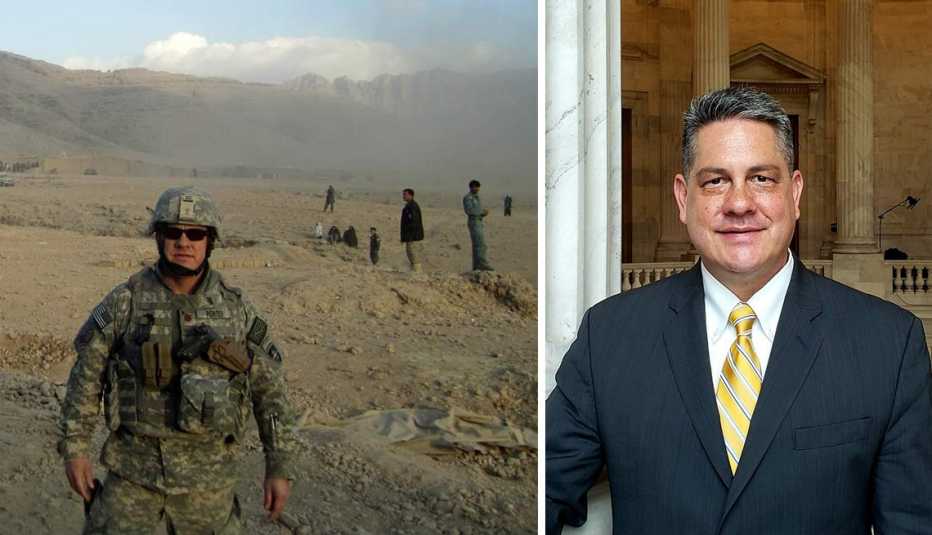AARP Hearing Center


The Afghanistan War, the longest war in U.S. history, spanned 20 years and saw 2,461 soldiers killed and 20,744 injured among the more than 800,000 Americans deployed. For the youngest service members, a country at war is all they knew. For the oldest, experiences that predated the start of fighting in 2001 helped shape their understanding of the complicated conflict that has now come to an end two decades later.
Fresh off the U.S. withdrawal of forces from the country, we spoke with five veterans of the Afghan War about their experiences serving as older — and at times the oldest — members on their units and asked for their thoughts on what Americans should know about the conflict. Their responses have been edited and condensed for clarity.
Jim Wiltraut, 62, of Alexandria, Virginia


From March to October 2017, Wiltraut was the head of public affairs for the Combined Security Transition Command, a U.S.-led multinational organization that equipped Afghan forces to fight the Taliban. He retired as a captain from the Navy earlier this year, after 44 years of service.
How did Afghanistan compare with your previous deployments?
There was direct combat all around. We say that we were there to train, advise and assist, but the enemy was there to kill us.
How did your age and experience prepare you for the mission?
With so many years under your belt, you can't help but be adaptable. You have to be ready for anything. At the same time, you know your day is going to be filled with surprises. The more you're prepared, the less surprised you'll be. The day I stepped into Afghanistan was a week shy of my 58th birthday. I walked off that helicopter with kids who were in their early 20s. There were things that they could do that I couldn't do, based on experience and rank, although I was senior to many of them. We all walked off that helicopter knowing that we were part of one.
What should Americans know about the war?
It’s frustrating to look back at the sacrifices that so many people have made and see all of that frittered away as the Taliban sweep across the country, virtually unopposed by a force we spent so long to create, fund and train.
What I hope the American people will remember is that 20 years ago, when we were first attacked, there were people willing to give their lives to make sure it didn't happen again. And for all of our political and social divisions, you can count on the fact that people from 18 to whatever age are going to be willing to make that call again.
What is your most vivid memory?
On May 31, 2017, a truck bomb detonated about 1,000 yards from where I was standing on a rooftop. I saw the energy plume clear the top of the building between me and that bomb. Once it reached me, I was thrown about 15 feet. Being on a rooftop, there wasn’t a whole lot of real estate to give up. Once the scramble in my head cleared, I went into the door where all my colleagues were. There was chaos for a little while, and then we grabbed gear and listened to what we were supposed to do next. Soon we found out what it was and what the implications were.
What is something you think all Afghan War veterans might share in common?
It’s like they say, "All generalizations are untrue." But I hope that they share a pride in what they did.
Jim Saenz, 56, of Arlington, Virginia


As a Special Forces officer, Saenz was deployed to Afghanistan several times throughout the mid-2000s. He previously served in Operation Desert Storm among other deployments, combating terrorism and on counter-narcotics missions. He retired from the Army as a colonel in 2017, after 30 years of service.
What is something that Americans should know about the war in Afghanistan?
Having been on many deployments in other parts of the world, I think it's important to understand that people are people. No matter what part of the world you travel to — their economic status, prominent religion or cultural norms — we're all people and we're all looking to have what we may define as a better life for our families.






































































More on Veterans
Vietnam Veterans Remember the War
On National Vietnam War Veterans Day, memories and opinions remain strong
Witnesses to World War II History
Survivors remember some of the conflict's remarkable momentsVeterans, Active Duty, and Military Families